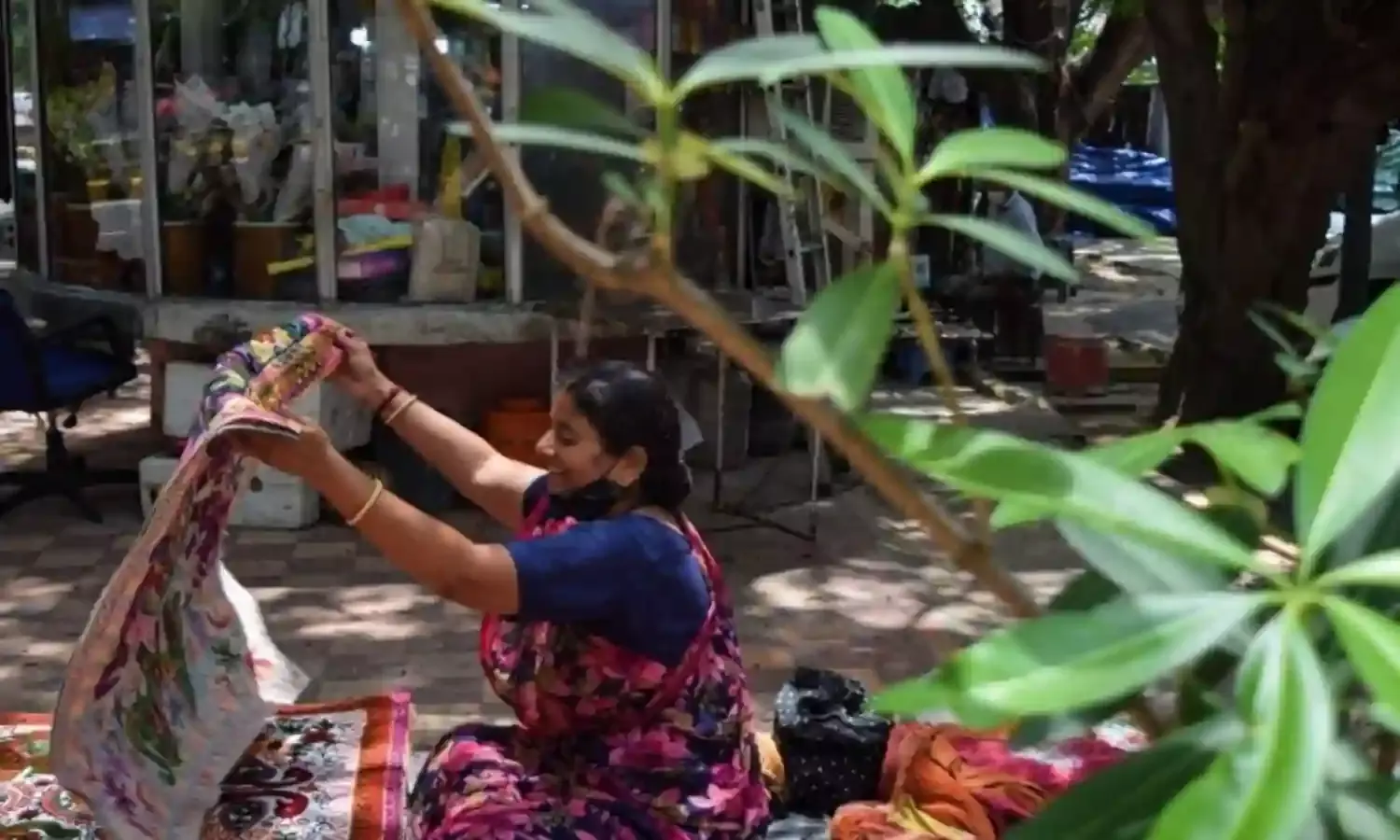Janpath, A High Street Like No Other
The pavements are home to cool bargains, and many dreams;

Nestled in Delhi, India’s Connaught Place, the Janpath market is a must-visit shopping hub for many, especially those new to the city. Home to hundreds of vendors, sellers, and shop owners, the market brings together various cultures, and products, and serves all those who come looking for a good bargain.
While several sellers own cemented ‘pucca’ shops with designated shop numbers and nameplates, many other sellers are without one. They set up shops wherever they can, on the footpaths, under a tree’s shade, under the awning of a big shop, beside a wall, and sometimes even on the wall.
They display goods on the cemented ground and nature’s gush of wind becomes their fans and air conditioners. They make a jute mat or a plastic sheet or just the floor the display platform for their products.
Santosh Kumar runs a ‘salon’ for shoes and slippers. He says he is a ‘leather doctor’ and has branded his shop aesthetically. He claims that he can beautify and fix footwear of all kinds. He opens his black bag and lays out all his tools. These include a beauty blender, blusher brush, eyebrow brush, and even a highlighter stick for the final touches. He lays out in open bundles of colourful ties and shoe laces too, after all what is life without colour?
Santosh Kumar sits quietly and seems lost in his world. Maybe he’s wondering that if his shoe salon had an air-conditioner or glass walls, it would’ve been more famous and full of people. Or maybe he’s just wondering that it’s not shoes that need to be fixed or beautified, but us?
Another shopkeeper refused to share his name because he was too shy, so let’s call him #46. He laid out shiny exquisite creations on the table and checked each one. His hands have seen more scars than money and have lifted more weight than success. He is barely clothed, maybe it’s because of the summer heat, but at least he has a chair to sit on and a table to lay his ware on.
He checks for the broken pieces, missing stones, tarnished parts, and throws away the defective pieces. His collection shone as much as the moon, it was as silver as it could be, but it looked blue because of the tin shade over his head.
While his discarded lot piled up on one end, he is barely left with any sellable jewels. He looks at them, inspects them a bit more, and stops because he couldn’t find more defects.
Savita has found her shop near a bookstore. Hailing from Gujarat, she came to Delhi decades ago and brought along with her the signature Kutch embroidery. Savita inherited the skill of this signature art from her mother and grandmother, and treasured it as an heirloom. If only she knew that savouring this heirloom would result in colourful products but a colourless future.
The constant movement of the thread and needle is such that it can be hard on the embroiderer’s hands and eyes. Savita wasn’t immune to it. Though she smiles and calls out “didi lejao bahut sundar lagega (buy it sister, it will look beautiful)” to every passing customer, her hands tremble and she struggles to open her eyes.
One after the other, she shows the colourful embroidered carpets to the buyers but fails to sell one. She unfolds and folds the pieces, with the same smile on her face but remarks “humaari zindagi se zyaada rangeen ye kaleen hain (these carpets are more colourful than our lives)”.
In the scorching heat of the city, her purple water bottle, which matches her saree, and the green tree remains her only source of solace.
Meanwhile, Radha makes use of her printed orange saree to wipe her sweaty face. Despite being surrounded by colourful, mirror-work Kutch embroidered bags and accessories, she stands out and looks vivid.
Radha is proud of her creations and displays them with utmost love and care. She loves talking to people. She said that she’s been setting up her shop for years regardless of her low earnings.
“Money is important but working and keeping my culture alive is more important”, she said as she continued bringing out the bags and sellable from her pink-coloured rented shop. Radha has been striving to make ends meet. Many of her neighbours locked their shops and went back to Gujarat when they failed to sell and earn. But she has not given up.
She dresses up each morning, in a bright-coloured saree, and sets her shop with the hopes of earning enough for the day.
While these sellers are searching for things as basic as shelter, shop, buyers, money, and some colour in their sellable and the people around them... we transverse from utopia to dystopia to find our answers. We look for our solace in literature and philosophical reads, while others find their resolution in the lyrics of Taylor Swift’s new album release.
Lying on the floor on a street: products wait to be sold, carpets wait to be laid, bags wait to be worn, shoes wait to be fixed, jewellery wait to be accessorised, books wait to be read, and sellers wait to sell—to finally stop searching for what they are.

